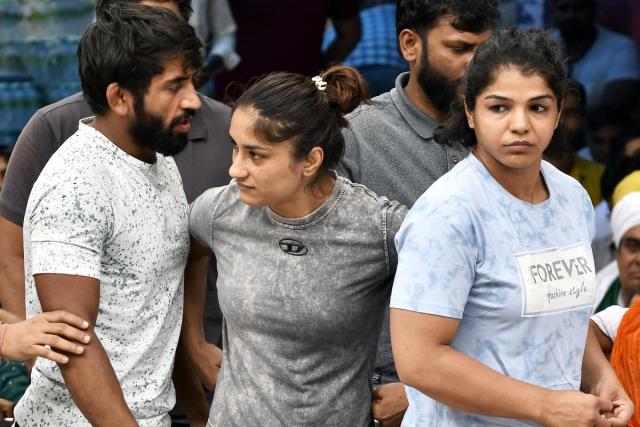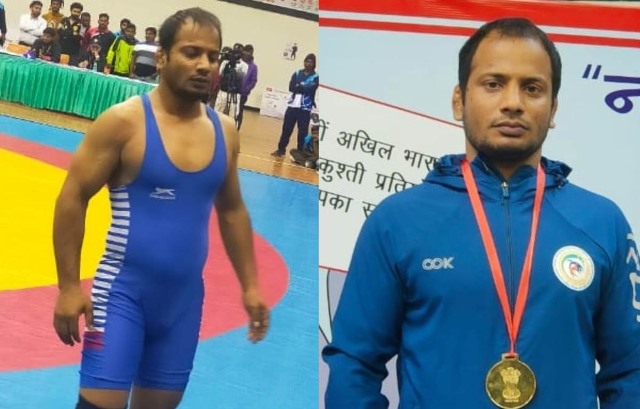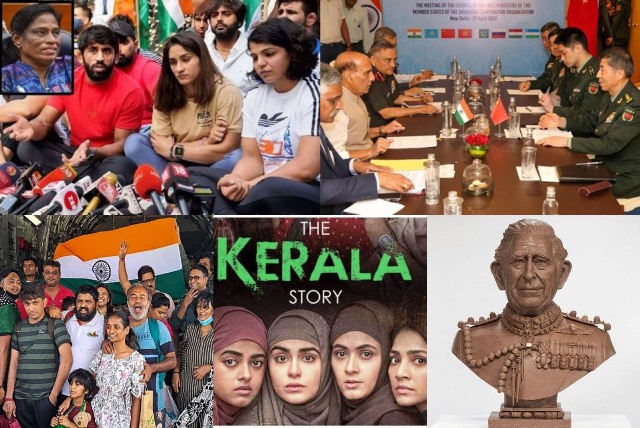Ma, wrestling has won, I have lost. Please forgive me, your dreams and my courage, everything is broken. I don’t have any more strength now. Goodbye wrestling, 2001-2024. I shall be indebted to you all. Forgive me…
Vinesh Phogat, in a message to her mother, Premlata
Tragic. Heart-breaking. An entire nation wept silent tears. In every heart, there was only one name – Vinesh Phogat.
Wednesday morning arrived with the terrible news of her disqualification. Our hearts sank into disbelief. Speechless, we prayed the news was untrue.
First, she defeated the formidable Yusneylis Guzman Lopez of Cuba in the last four stage bout. Arms raised, she thanked God. The stadium rose to give her a standing ovation.
Then she did the impossible. She became victorious over the Tokyo Olympics Gold Medal winner, Yui Susaki of Japan.
Vinesh Phogat was in the final of the Summer Olympic Games of Paris. At last!
India celebrated, in whole-hearted praise, for her incredible daughter, like never before.
Then, on Wednesday, the entire nation mourned. Except the handful of ‘traitors’ – gaddars! The vicious, shameless trolls, who did what they do best.
The prime minister apparently did not send a message of congratulations to her after her great and glorious victory. Is it correct? Why?
His laudatory words of praise came reportedly only after her disqualification. He called her a “champion of champions”. “Come back stronger! We are all rooting for her,” he said.
Instead, Vinesh, just about 29, has quit the sport which is her body and soul. Her goodbye, soaked in saline waters, will find a sublime synthesis now with the rain-soaked mud of her childhood homeland in Haryana. The sweet fragrance of the earth, moments after the rain, still lingering in the humid atmosphere, too, will be soaked with her heart-breaking sacrifice.
Of all the medals she has won, this was the most precious of all. And the gold was also within reach! In her long career of 25 years – this was truly her Silver Jubilee of sacrifice!
And yet, as a nation, let us not forget, never ever, how she and Sakshi Malik, another world champion wrestler, went to immerse all their lifetime medals in Ganga at Har ki Pauri in Haridwar. They almost did it, but a farmer leader from Western UP rushed to the ghat and stopped them.
Did the PM try to stop them? Of course not.
Then she and another great wrestler, fighter, and her comrade in arms, Bajrang Punia, threw their medals on the dusty streets of Lutyens Delhi, so close to South Block, the centre of power in India. Did the PM utter a word to tell them – please, don’t do this.
ALSO READ: Daughters Against Dictators
A BJP bahubali, backed by the PM, yet again managed to wrest control over the male-dominated Wrestling Federation of India, defeating another woman wrestling champion, who dared to take them on. In protest, Sakshi Malik quit, tears flowing down her face, at the Press Club of India in Delhi. She placed her blue shoes on top of the table – as her final farewell to her most favourite sport.
The PM, of course, kept mum.
Champion of champions?
She cut her hair as the last resort. She was dehydrated, surviving on little drops of water. She stopped eating. She cycled and jogged. She did her best. And, yet, they disqualified her for gaining 100 grams of weight.
“Why was she not given a couple of hours’ grace period which is allowed to players in such situations? What was the Wrestling Federation of India doing? What was the Indian Olympic Association doing? What were the sports officials doing? What was the sports minister doing? These questions will be asked,” said Congress MP Randeep Surjewala, from her home state.
So why was the Olympic Games rule that allows a wrestler to plead injury, given the circumstances, not applied, so that the silver medal could still belong to her, and the nation?
And let us also not forget, never ever, their long and protracted struggle for justice on the streets of the power capital of India. It took them six months to get an FIR registered! In the early period of their peaceful struggle at Jantar Mantar in Delhi, they were reportedly denied access to food or toilets. Even their family members were not allowed to visit them.
Were our world champion women wrestlers criminals? Do they deserve to be treated like this?
Then they were trolled, castigated, hounded. They were beaten up, dragged brutally, arrested by the Delhi Police, even while the PM, like a monarch, symbol in hand, performed religious rituals in the secular and sacred space of the Parliament of a secular democracy.
How can the nation forget how disgracefully they were treated, and it went on and on!
We have to learn many lessons from the brave daughters of our land. They refused to succumb in all circumstances. They became the scaffolding of a historic movement — the first in the history of sports in India. They turned into inspirational role models and iconic celebrities, for an entire generation of girls and women of India. And, for all the future generations to come.
With their non-violent struggle, and incredible record in the sport, they stand among the all-time greats who stood up against all forms of injustice and cruelty – against racism for instance. They are now the proud inheritors of the ‘take the knee’ and the Black Lives movement.
In their victories and resistance, Vinesh and Sakshi remind us of the great boxer, Mohammad Ali, who refused to go to war against the guerilla fighters of Vietnam, and who defied the racists of the nasty, white, supremacist establishment of America.
In an open letter in the summer of 2023, Sakshi Malik wrote: “You all saw what happened on May 28. How the Delhi Police behaved with us and brutally arrested us. We were conducting a peaceful protest movement. The police ransacked our place and took it from us. The next day the police lodged FIRs against us. Have women wrestlers committed a crime by asking justice for all the sexual harassment meted out to them? The police and the system are treating us like criminals, while the harasser verbally attacks us in public meetings. Now, we ask, why did we win those medals (for India)? Did we win those medals so that the system can treat us like this — drag us, malign us, and term us criminals?”
In her tragedy, Vinesh Phogat has become a sports icon unsurpassed in the history of sports in India. We pray that she regains her courage and resilience in the days to come. Undoubtedly, for her, as for Sakshi Malik, there are still miles to go, though the woods are still dark and deep.
For more details visit us: https://lokmarg.com/



